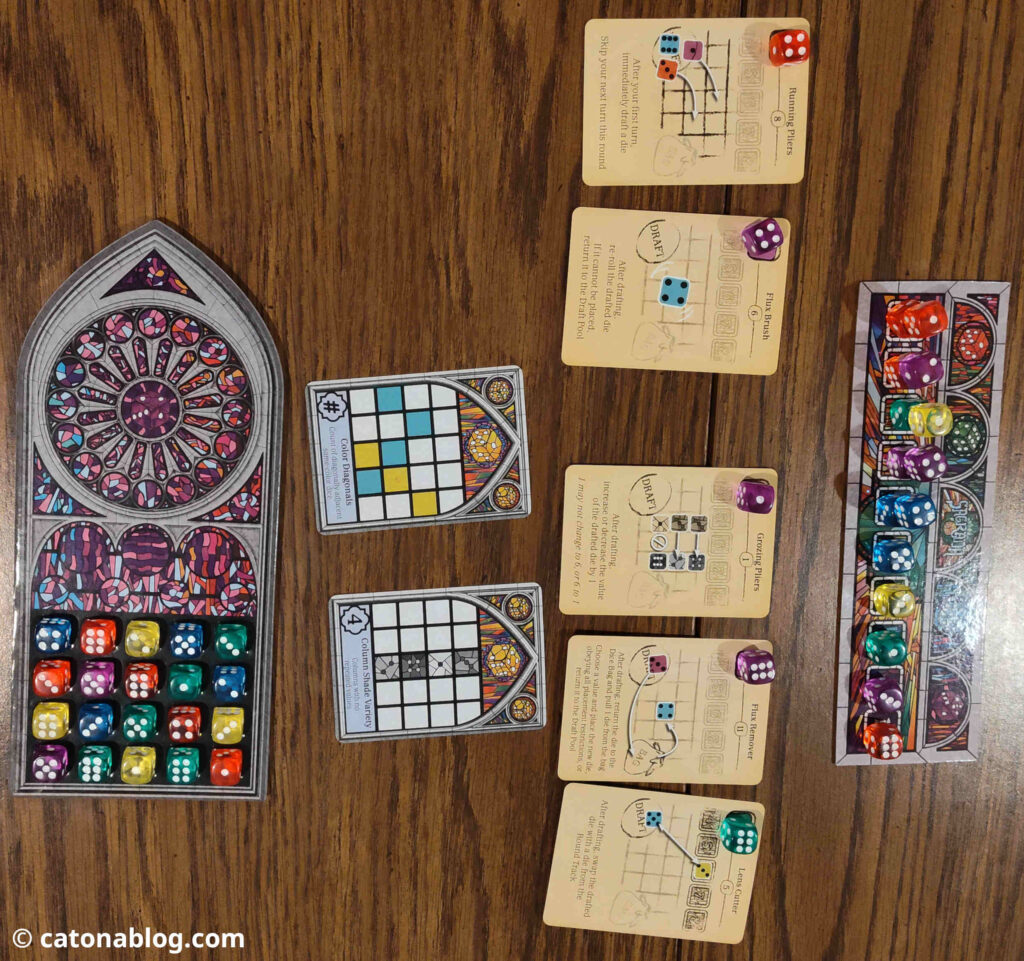
Feb 16th, 2024 Friday Cloudy
Recently I took an excursion to a local public library. My primary goal was to return a few books and check out some CDs to listen to while I do crafting at home.
The library has a fairly user-friendly online catalog, where I can easily look up any specific items I like, check their status and location in the library, and maximize my efficiency of retrieving them. I often have a list prepared ahead of time, so it only takes me, at most, five to ten minutes inside the library, and I am able to time myself for the next bus.
This time, after I picked up four CDs, something caught my eyes. Standing on the left side of the main isle was a tall shelf with a few board games on it, one copy each. There was no sign nearby. Are these games also for check-out?
I walked closer and perused the shelf. Thinking that these must be some children-oriented family games, I was pleasantly surprised to find familiar titles like Tsuro and Betrayal, popular even among adult gamers, on display. I grabbed Sagrada, a tile (or rather dice) placement puzzle game that has often been praised for how pretty the boards (“stain-glass windows” in the game) look. A sticker on the box requested that the game must be returned directly to the library, not via book drop – so I must be able to borrow it!
I brought the game to a librarian, and inquired about it.
“Yes, you can keep it for two weeks, the same loan period as other medias. We do not advertise them. You cannot search for it online, or request it – you will have to come to the library and find it, if you are lucky. That is why we call it a serendipity item.” the librarian said with a wink.
What a genius idea! “Serendipity”, good luck in making unexpected and fortunate sightings, adds just the right amount of chance in our otherwise mundane routine of everyday life. Without them, most errands nowadays can be meticulously planned since almost all information is available online (yes, I have even calculated the total price of a weekly grocery trip in different stores to decide which one to go to for the best deal) and carried out physically with minimum time spent. Our minds would be closed as we focus so much on checking items on the pre-determined list that we ignore “irrelevant” stimuli in the environment. Those are just things we do not want, after all.
Not if we can encounter some treasure among the “unwanted”. The joy of coming across serendipity is similar to that experienced by a child when they open a Christmas gift and see their favorite toy. It brings out a big, genuine smile.
Of course, this level of adventure has to be balanced with a very reliable system that people trust they can find the majority of things they need without much effort. If the success of my entire library/shopping mission depends on my luck of the day, then the stress of NOT being lucky (hence going home disappointed) would be too much. Only when I feel certain that this expedition would be fruitful even if luck is not with me will I have the leisurely mind to explore the unknown.
I happily took the game home and enjoyed it with my husband (and the kittens who kept pawing all the toy-like dice). I look forward to my visit to that part of town again, where a few places have serendipity items now (e.g. library, board game store). What would I discover next time?